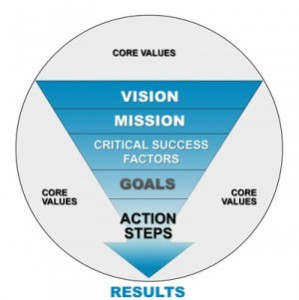 “Do to others as you would have them do to you.”
“Do to others as you would have them do to you.”
Luke 6:31
The Golden Rule. It seems that we all know Luke 6:31 so well yet are unable to keep it most of the time. The church is a people business that is based upon relationships – with God and with each other. Jesus taught us this principle so we might live in harmony with each other, and with God, and to demonstrate to the world the love that He died for. When you lead or manage people, you are in a relationship with them, not just in a position of authority over them. Managing people is not about telling others what they can do for you, but rather asking them what you can do for them. It is a daily practice of the Golden Rule as Jesus taught us.
Why is learning how to lead and manage people so important for the church and its leaders? It is because the church is all about people. It is also because people are the church’s most abundant resource and the means by which ministry takes place. It is people who minister to others and are ministered to. Money can’t minister. Buildings can’t minister. Only people can do that. So it is imperative that pastors and church leaders be effective in how they lead and manage their church members, staff, ministry leaders and volunteers so that they are all discipled and the church can grow.
There are a few key principles about managing people that leaders should know:
#1. People are unique. Every person was uniquely created by God (“For you created my inmost being; you knit me together in my mother’s womb.” – Psalm 139:13). No two people are exactly alike, not even twins. Each of us has different personalities, different experiences, differing education and differing work history. A pastor or church leader must not assume that everyone believes or thinks the same about activities or issues in the church. Each church member must be viewed as a unique individual with different needs, thoughts and perspectives. Knowing each member individually helps church leaders learn how to best motivate, direct and encourage each of them. Using only one method to motivate every church member seldom works.
#2. People want to participate. Most people prefer to be participants rather than spectators. God has gifted every person to make a contribution to the body of Christ (“Now to each one the manifestation of the Spirit is given for the common good.” – 1 Corinthians 12:7). Participation in the ministry of the church enables church members to see how God is at work in them and in others. And that is a powerful discipleship tool. People learn best by doing. Failure to engage members in the ministry of the church causes them to miss opportunities to experience and affirm their faith and often leads to their withdrawal from the church.
#3. People want direction. In any organization, members desire to know what the organization is about and where it is going. The same is true for the church. Members need to know what the church’s vision and goals are and how they can make a contribution or participate in reaching those goals. The Bible says in Proverbs 29:18 that, “Where there is no revelation, the people cast off restraint.” Without a vision or goal to attain, people will simply do what they think is best or what they think should be done. Pastors and leaders must have a vision and then share and communicate that vision to the church so that everybody can work together towards the same vision or goal. This will enable church members to work together and coordinate their efforts so that the church can progress and move forward.
So, what should pastors and church leaders do to lead and manage people more effectively in the church? Here are 5 simple steps:
- Include them. Make every attempt to include all church members in the ministry of the church, using their gifts where appropriate or needed.
- Respect them. Invite ideas and suggestions from everyone and value those contributions. Great ideas often come from the most unlikely of people.
- Train them. Be sure to equip people for the ministry work you are asking them to do. Provide training yourself or send them to external training seminars or classes as needed.
- Recognize them. Be sure to give people acknowledgement or credit for their contributions to the ministry. Failure to do that often leads volunteers to withdraw from serving.
- Reward them. A little appreciation goes a long way. A small gift or just taking someone out for coffee or lunch affirms their contribution and will encourage future involvement.














